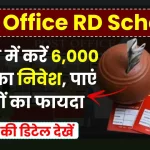
£12000 Compensation for Pensioners: Understanding how the Department for Work and Pensions (DWP) compensates pensioners who were underpaid can be crucial for many retirees. With compensation payouts averaging £12,000 for some, it’s important to know if you or someone you know is eligible. This guide will break down the details, payment schedules, and steps to claim your compensation in simple terms, ensuring everyone—from pensioners to professionals—can stay informed. By diving into the specifics of this scheme, you can better understand the causes, processes, and practical ways to ensure you or a loved one doesn’t miss out on what they’re entitled to.
£12000 Compensation for Pensioners
| Topic | Details |
|---|---|
| Average Compensation | £12,000 (some cases higher) |
| Groups Affected | Married Women, Widows, Over-80s |
| Main Causes | Manual errors in updating pension records |
| Payment Status | Ongoing reviews and payments |
| Deadline for Corrections | End of 2024 (target) |
| Official Source | DWP Website |
The DWP’s compensation scheme for pension underpayments is a crucial step in addressing historical errors. With average payouts of £12,000, eligible pensioners are urged to review their records and claim their rightful entitlements. By staying informed and proactive, you can ensure you or your loved ones don’t miss out on these corrections. The compensation is not just a financial adjustment but a recognition of the importance of fair and accurate pension distribution.
Who Is Eligible for the Compensation?
The DWP’s review identified several groups of pensioners who were underpaid due to errors. If you fall into any of these categories, you could be entitled to back payments. Identifying these groups helps streamline the process, making it easier for claimants to understand where they stand.
1. Married Women (Category BL)
- Women whose State Pension was not automatically increased to 60% of their husband’s basic State Pension.
- Example: Jane, whose husband receives £150 per week in basic State Pension, should have been entitled to £90 per week. Instead, she received £75. Such discrepancies, though seemingly small, can add up to thousands over years.
2. Widows
- Widows whose pensions were not increased after their spouse’s death.
- Example: Margaret, a widow, continued receiving her own pension without adjustments reflecting her late husband’s contributions. Widowhood often brings financial strain, and these corrections aim to ease such burdens.
3. Individuals Over 80 (Category D)
- Non-contributory pensioners over 80 receiving less than the full amount.
- Example: George, aged 82, was entitled to £84.25 per week but was only paid £70. Older pensioners in this category are particularly vulnerable, making these adjustments essential.
If you’re unsure which category you fall into, the DWP’s Pension Service can help clarify your eligibility. They have dedicated teams to assist and ensure all queries are addressed.
Why Did These Underpayments Happen?
The underpayments were primarily caused by manual errors and systemic failures. Here are the main issues that contributed to these widespread mistakes:
- Failure to update records after marital changes (marriage, bereavement).
- Lack of automation in applying certain pension entitlements, leading to oversight.
- Limited awareness among pensioners about what they were entitled to. Many individuals were unaware that their payments were incorrect, assuming they were receiving the correct amounts.
These errors stemmed from outdated systems and a reliance on manual processes, highlighting the need for modernization within the DWP’s administrative frameworks. The DWP has acknowledged these shortcomings and has launched a systematic review to identify and correct the errors.
How Are Payments Being Processed?
The DWP has categorized the corrections into three phases, reflecting the complexity of each case type and ensuring a structured approach.
Phase 1: Married Women and Over-80s
- Status: Nearly completed.
- Focus: Addressing straightforward cases like married women eligible for Category BL pensions. These cases often require minimal verification, making them quicker to resolve.
Phase 2: Widows
- Status: Ongoing, expected to be completed by the end of 2024.
- Focus: Adjusting pensions for widows and ensuring proper calculations. Given the potential complexities in these cases, this phase involves more detailed assessments.
Phase 3: Complex Cases
- Status: Under review.
- Focus: Cases requiring detailed investigations, such as those involving mixed contributions or unclear records. These cases may include individuals with incomplete documentation or overlapping entitlements.
This phased approach ensures that simpler cases are addressed promptly while allocating sufficient resources to resolve more intricate issues.
Steps to Check and Claim Your Compensation
Follow these steps to determine if you are eligible and claim your due compensation. Being proactive is key to ensuring you don’t miss out on what you’re owed.
Step 1: Review Your Pension Records
- Gather your State Pension statements.
- Check the amount you’re receiving against what you’re entitled to. Tools like online pension calculators can help you estimate what you should be receiving.
Step 2: Contact the DWP Pension Service
- Call the Pension Service helpline at 0800 731 0469.
- Alternatively, visit the official DWP website to access additional resources or submit a query online.
Step 3: Provide Necessary Documentation
- Have your National Insurance number and other relevant documents (e.g., marital certificates) ready. Accurate documentation ensures faster processing of your claim.
Step 4: Wait for Confirmation
- The DWP will review your records and notify you about any adjustments or payments. Patience is essential as processing times can vary based on the complexity of your case.
Step 5: Appeal if Necessary
- If you believe the review missed something, you can file an appeal with the DWP. Ensure you provide all supporting evidence for a stronger case.
By following these steps, you can navigate the process with greater ease and confidence.
Commonly Asked Questions About £12000 Compensation for Pensioners
Q1: How do I know if I was underpaid?
If you fall into one of the affected categories (e.g., married women, widows), you should check your pension payments and contact the DWP for a review. The process is straightforward and often starts with a phone call.
Q2: How long will it take to receive my compensation?
The timeline varies. Simple cases are resolved faster, while complex ones may take months. On average, most eligible recipients receive their compensation within six to twelve months.
Q3: Will I be compensated for interest or delays?
The DWP typically provides a lump sum covering the missed payments but does not pay additional interest. However, the compensation amount reflects all unpaid entitlements over the affected period.
Q4: Can my family claim on my behalf if I’m deceased?
Yes, family members can contact the DWP to inquire about claims for deceased relatives. Executors or next of kin may need to provide relevant documentation, such as death certificates and proof of relationship.
Canada’s $500 Housing Benefit: How to Claim in December 2024? Check Process
Canada Housing Benefit Increase for 2024: $1,850 Deposit Dates Released, Check Details Here
$1576/Month OAS Payment Increase: Canada’s December 2024 Update You Need to Know
Practical Tips for Pensioners
- Stay Informed: Regularly review updates on the DWP website and stay connected with pension-related news.
- Seek Professional Advice: If unsure, consult a pension adviser or financial expert. They can provide tailored advice and simplify the claims process.
- Spread the Word: Inform friends or family who may be eligible. Sharing information ensures that more individuals can benefit from these corrections.
- Keep Records: Maintain organized files of all pension-related documents for easy reference during claims or reviews.











